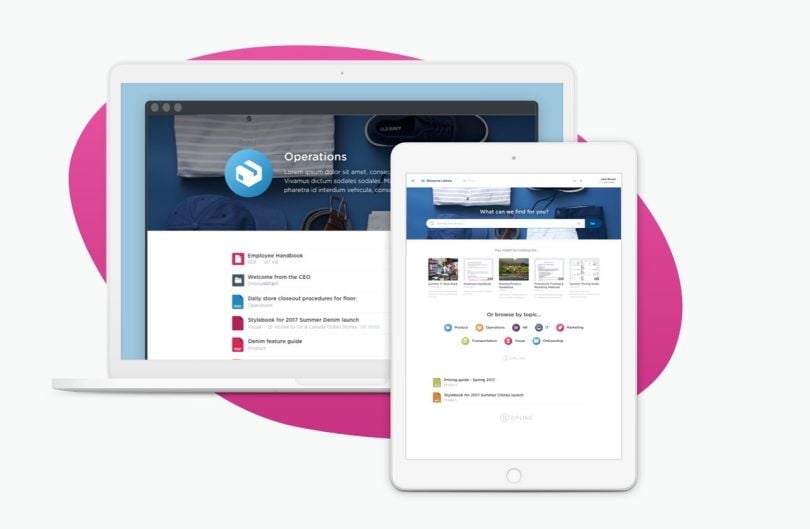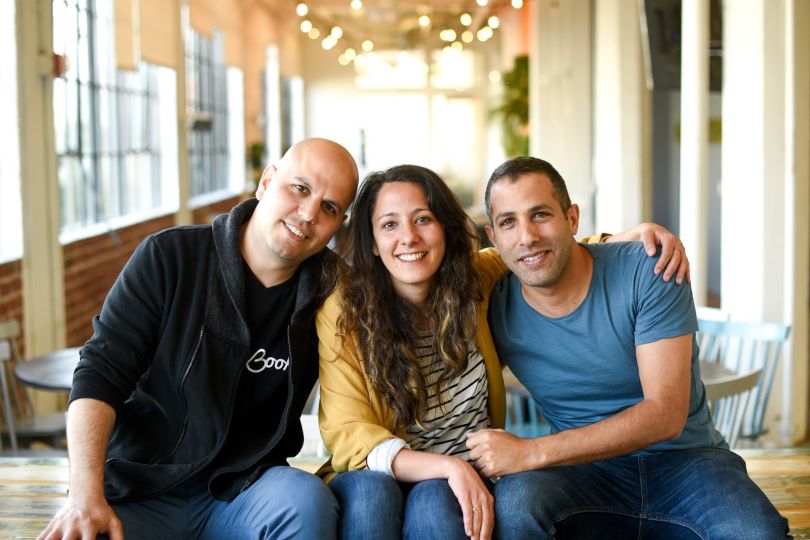As the world tries fiercely to quell the coronavirus pandemic, millions of people are feeling the economic fallout. The hospitality industry, retail workers and small business owners are being hit particularly hard, as people in San Francisco and elsewhere continue to social distance and refrain from dining and shopping in public.
But there are reasons to be hopeful.
At a time when non-salaried employees are most vulnerable to loss of income, some in the San Francisco tech community are putting their own business needs second to helping these workers get support.
Facebook announced last week it would donate $100 million in grants to 30,000 small businesses throughout the country. Google is letting contractors and vendors take paid sick leave if they have symptoms associated with COVID-19. Food delivery services like Postmates, DoorDash and UberEats are waiving commission fees for some independent restaurants as they struggle to make up sales lost to in-house dining.
Smaller tech startups in San Francisco are helping out too — particularly those who already serve the hourly worker and small business communities.
Retail Zipline, a platform designed to improve communication from retail company headquarters to in-store employees, recently launched a COVID-19 Hub. The tool allows retail employees — 497 million workers globally — to easily access communication related to the virus, including breaking news, policies around sanitization standards and what to do around extra supply pushes during this time.
HoneyBook, which provides software for freelancers and small business owners, put together a business continuity plan to address the needs of its members. The plan includes updated contract templates with new clauses to better protect business owners, email templates to address the most common client questions and other resources to help business leaders during this challenging time.
Supporting independent restaurants
Even though no one is going out to eat, restaurants that offer delivery are still doing a lot of business. Eateries that already did to-go orders are now offering their takeout menu full-time, and those that previously offered dine-in only have pivoted to takeout and delivery out of necessity.
Food delivery apps UberEats, Postmates and Doordash are seeing a surge in users and have all recently announced several ways they’ll be supporting the restaurants that make their businesses possible.
Last week, UberEats said in a press release it will waive the standard delivery fee for 100,000 independent restaurants throughout the United States and Canada. It also started advertising local restaurant delivery options in its app and via emails, and it made it possible for restaurants to get paid by UberEats daily, rather than waiting for the usual payment cycle.
Postmates is currently waiving commission fees for businesses in San Francisco and Sacramento that join the delivery service. The company will also reimburse members of its fleet for medical expenses associated with COVID-19 symptoms, even if they test negative or are unable to be tested at all.
Similarly, Doordash is waiving the commission fee for 30 days for independent restaurants that join the platform (or Caviar, which is also owned by Doordash) through April, and waiving commission fees on pick-up orders for restaurants that already use its service.
Helping retail workers stay safe and informed

With so much uncertainty around the pandemic, efficient and accurate communication has become more important than ever. That’s why Melissa Wong, CEO and co-founder of Retail Zipline, was quick to launch the company’s COVID-19 Hub. Currently, 76 percent of her customers are using the platform to communicate COVID-19 preparedness.
“In times of crisis, what can cause a breakdown in communication is not that the information isn’t available, it’s that it’s outdated or too hard to find,” Wong said. The hub provides a dashboard alert and a landing page to serve as a “single-source-of-truth” for all related messages and resources, Wong said.
For many retail organizations, workers on the floor are often tasked with carrying out crisis and safety plans. But because the current standard of communication in stores includes emails, faxes and print-outs on bulletin boards, it can be easy to miss the most up-to-date information. Instead, Retail Zipline sends push notifications to every worker’s phone so they’re informed about the most up-to-date crisis plan for the company.

As the COVID-19 pandemic continues to develop, Retail Zipline has shifted the approach of its customer success team to focus on crisis management within the platform and has begun taking remote meetings with customers to better understand their concerns. Many people at the company are former retail operations leaders who understand in-store communication and procedures. Wong and her team have pulled from their collective knowledge of best practices and continue to share them with their users.
“Technology leaders have an obligation to help their customers, and the population, if they can alleviate some of the anxiety, reduce some of the impact or prevent transmission,” Wong said. She advocated that leaders in every industry consider offering their services at no cost, and bring together communities and industry experts to advise on key topics and share ideas.
Wong also advised that organization leaders continue to check-in with employees and customers through surveys to understand how they’re feeling and answer any questions.
“By transparently and frequently communicating what’s happening and acknowledging the uncertainty that both customers and employees feel,” Wong said, “leaders can help navigate their teams through these changing times.”

Protecting small business owners
Limited travel and canceled or rescheduled events amid social distancing regulations have caused a major slowdown in business and lost revenue across industries. This has been particularly true in the event and wedding industries, which includes people who use client management software from HoneyBook.
As the coronavirus pandemic became more serious, one of the first things HoneyBook did was investigate the scope of the issue by speaking with customers, said Oz Alon, CEO and co-founder of the company. Team members began reaching out to customers directly, asking what they were struggling with most during this time.
Afterward, HoneyBook partnered with legal, finance and communications experts to put together a business continuity plan addressing the needs of the community. The company provided its customers, many of whom are small businesses and freelancers, with updated contract templates including three new clauses — one protects service providers in the case of “unforeseeable, unavoidable or impossible events,” one gives the provider the right to discontinue service if they’re at risk of disease and one clarifies the procedure in place if the provider can’t perform their services.
In addition to the updated contracts and FAQ email templates for business owners, HoneyBook also launched a support hotline for members to speak directly with HoneyBook employees about their concerns, and they created an online dashboard with the most up-to-date resources from the World Health Organization and the Centers for Disease Control and Prevention. The wider HoneyBook community of founders and entrepreneurs all over the world are now holding monthly video meet-ups instead of meeting in person.
“We remain in regular communication with the small business community and are working to address their needs as the situation develops,” Alon said. “Our goal is to help all business owners weather this storm.”
The coronavirus is likely to have a severe impact on small business owners and their way of life, Alon said. He urged tech leaders to recognize this and to do everything in their power to help mitigate the impact.
“Now is not the time to worry about meeting your business goals,” Alon said, “but rather to figure out how we can weather this storm together as a global community.”




